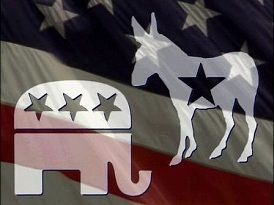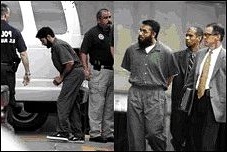Israeli police shoot Haneen Zoabi in back
Jonathan Cook
Israeli Occupation Archive

Protest met with rubber bullets: Israeli police shoot ‘hated’ Arab legislator in back
Israeli police injured two Arab legislators on Wedensay in violent clashes provoked by Jewish rightwing extremists staging a march through the northern Arab town of Umm al-Fahm.
Haneen Zoubi, a parliament member who has become a national hate figure in Israel and received hundreds of death threats since her participation in an aid flotilla to Gaza in the summer, was among those hurt.
Ms Zoubi reported being hit in the back and neck by rubber bullets as she fled the area when police opened fire. In an interview, she said she believed she had been specifically targeted by police snipers after they identified her.
Police denied her claims, saying they had used only tear gas and stun grenades.
Some 1,500 police were reported to have faced off with hundreds of Arab and Jewish demonstrators in the town.
Shimon Koren, the northern police commander, admitted special paramilitary forces had been used against the Arab counter-demonstration, as well as an undercover unit more usually deployed at Palestinian protests in the West Bank.
An officer disguised as an Arab demonstrator, from the so-called “mistarvim unit”, was among the injured, apparently after police fired a stun grenade at him by mistake.
Ms Zoubi harshly criticised the police violence.
“The police proved that they are a far more dangerous threat to me and other Arab citizens than the fascist group that came to Umm al-Fahm,” [she said.]
The march was organised by far-right settlers allied to Kach, a movement that demands the expulsion of Palestinians from both Israel and the occupied territories. The movement was formally outlawed in 1994, but has continued to flourish openly among some settler groups. The organisers said they were demanding the banning of the Islamic Movement, which has its headquarters in Umm al-Fahm.




























